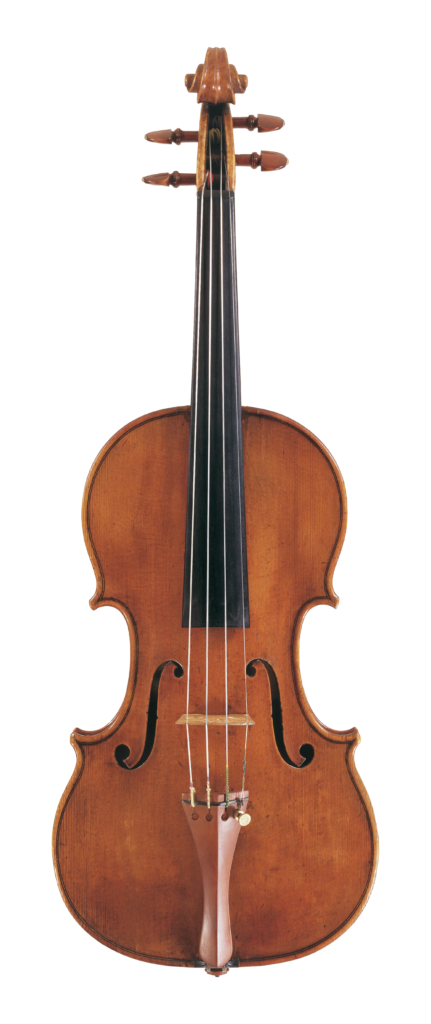If you've ever been in the market for a violin, chances are that at some point you've come across an instrument that has a label inside of it identifying it as a Stradivarius. You get excited; you think, wow, here's a Stradivarius violin I can afford! I can provide my child with an instrument they can play in youth orchestra and keep as a precious heirloom! This is amazing!
Sorry, but I've got bad news for you: that's not a Strad. Those labels you see indicate that the instrument was built using a Stradivarius as a model, and even that is inaccurate, since most of the Stradivarius instruments played today were radically altered in the nineteenth century to conform with the changes in the violin's design that took place since they were built in the early 18th century. It's sad, because today many performers in the early music movement would love to play an unreconstructed Strad, but the few that remain are mostly found in museums. In any case, a real Stradivarius costs more than a mansion and the whereabouts of each surviving instrument is well documented; they're not going to turn up on Craigslist or at a place that rents band instruments at your local strip mall. When someone shows up with a real Stradivarius, it's an event; if there's more than one, it's extraordinary, which is why there's always a full house for the Library of Congress's annual Stradivari Anniversary Concerts, featuring the five instruments they own by the legendary master.
So it's hard to convey just how special it is that NINE Stradivarius violins will be in Richmond this weekend. The Richmond Symphony will open their 2024-25 season with Strad Fest (September 12-15), a four day celebration that will include performances by several exciting young virtuosi including the eternally youthful Itzhak Perlman. You'll hear them played as solo instruments accompanied by the orchestra as well as in chamber works with one another. There will be workshops and demonstrations that will dive deep into the art of violin making. And the Carpenter Theater will undergo a transformation just for this event that will turn it into a more intimate space in order to create an ideal acoustic environment for the proper appreciation of these instruments.
I'll never forget my own two experiences with Stradivarius instruments. I began my radio career at WNYE, then in Brooklyn in a nondescript concrete building. I had a show featuring a variety of musical guests that all played live on air in the studio. One time we had a six-piece klezmer band in that little studio, but no matter what we had we managed to make it work. Well, one time a violinist came in with her Strad. As soon as she started playing all the needles went into the red. This one solo instrument created a resonance in this room that overwhelmed our equipment which had no problem with multiple accordions and trumpets. It was incredible, She ended up playing six feet from the microphone and it was still distorted.
Another time a wonderful cellist came in with her Stradivarius cello. After the interview, in which I mentioned that I played the cello, she asked if I wanted to try out her instrument. I hadn't dared to ask; it was incredibly generous of her. I played it for about three minutes. I've never sounded that good before or since. It was so easy to play! As someone who grew up playing public school cellos and had never owned a truly professional instrument, it was so gratifying to play a cello that responded so well and allowed me to luxuriate in my own sound. And knowing that this same instrument had been continuously played for 300 years made me aware that even my brief fling with the cello created its own unique chapter in that cello's history.
And several unique chapters of that sort will be written in Richmond this week.
PBS PASSPORT
Stream tens of thousands of hours of your PBS and local favorites with WETA+ and PBS Passport whenever and wherever you want. Catch up on a single episode or binge-watch full seasons before they air on TV.
